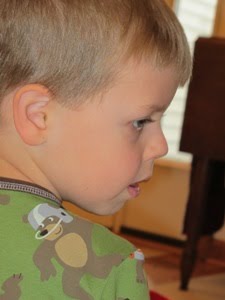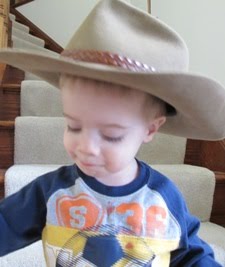(I wrote this in college.)
“Echoes of a Childhood Lost”
About ten minutes later, I find myself walking into the Emergency Room of a nearby hospital, accompanied by my mother and sister (who is fourteen years old and just as disoriented). At this point, we have been told only that my father is sick. However, my insides cannot lie to me; I know that this night will change the rest of my life.
It seems like ages until I am spoken to, and even longer until I speak myself. I feel forgotten, lost in the commotion, but accept my role as child: to be seen and not heard. I realize that I am not capable to understand fully this situation, and patiently wait for some final word to confirm what I sense. An eternity passes, and the sound of bustling people fades into the background as the ticking clock on the stark wall drowns it out. It is just before seven p.m.
Reality finally dawns on me when Mr. _____ (a friend’s father) gives me a hug and tells me that everything will be all right. I finally have the confirmation I needed. If nothing were wrong, he wouldn’t try so anxiously to reassure me; I had never seen him show any emotions before. But now I’m not sure if I can handle the truth. The clock, now deafening, mimics the unbearable inner pain trapped somewhere in the pit of my stomach. At exactly 7:37:26 a nurse comes into the waiting room and announces that my father has indeed died. Time stops as the laughter of my childhood deserts me and accompanies my father into the vast unknown. I pull back from the beyond and search for security in the here and now. I notice that the room, which was bursting with people, has become empty of all except my mother, sister, and me. I look around, trying to soak in my surroundings, aware that I will later want to remember all of this. The room seems so big, and I so small. The three of us are in different parts of the room: my mother standing by the door rocking back and forth, my sister on the opposite side of the room – staring through a painting on the wall, and I sitting on a couch between the two of them. I note this and decide that only later will I understand why they were so far apart – is this what life will be like? I feel tired, very tired. Tears begin to flow silently down my desolate cheeks. Not of sorrow or remorse, these tears are present because they are expected of me.
Before I leave the hospital that evening I am permitted to see my father, or rather, the remains of him. The picture of his hard, unresponsive body lying on the cold metal table will stay with me forever. While in the room, I remember that when he dropped me off at school that morning, I failed to say my customary “Bye, Daddy. I love you.” I try to push this haunting fact out of my mind by reminding myself that I need to concentrate on more pertinent things. However, its persistence in being acknowledged amazes me. Before I leave the sterile room, leaving my mother there alone, I whisper the neglected words – my goodbye. The bitter silence of my soul has been broken at last. I have spoken, and in doing so have challenged death itself.
Though completely exhausted, I refuse the consolation of sleep that night. As I sit alone in the overwhelming darkness of my room, my first thought is that this is merely a dream. I keep looking out of the window, waiting for my father’s car to come up the street. I even count the cars as they pass on the nearby National Road; I reach ninety before quitting. Ninety. I suddenly speak aloud, breaking the silence of denial. “I’m wasting my time. This is real: this is my life. I need to just live it.”
I spend the remaining night hours sitting in the windowsill, thinking. My actions will be most beneficial if I figure out how everyone else will react, and assume my role accordingly. Before morning comes, I decide to go on with life, while picking up added responsibility at home. My sister will become bitter and use this as another justification for her rebellion. There are no sons, no adult children. It is up to me to be ‘the man of the house’.
My mother tries to cling to some sort of normalcy in the midst of all this chaos. I do my best to help her and try to become responsible for as much as I can at home. I attempt to take on the responsibility for much of the decision-making, even delineating the rules that my elder sister should obey since in her grief she seems determined not to follow the "house rules." This child has been self-elevated to a pseudo-adult trapped in the body of a child. The suffocating child within – screaming and longing for expression – is self-repressed for the survival of the ‘family’.
My transition into adulthood indeed proves arduous. It gradually becomes difficult, many times nearly impossible, for me to relate to my once close friends. I now know and have experienced so much, that it forms a chasm between us. People either see my outward child appearance and fail to see the near-adult within, or see the adult characteristics and overlook the child. It would be a full seven years before I once again genuinely laugh with friends.
How does this metamorphosis finally occur? I myself don’t even know entirely for sure. But I do know that I first noticed its completion upon attaining full independence. Perhaps utter exhaustion from the struggle forced the child to surrender to the competing adult. Maybe the how and why don’t matter. Adulthood has been achieved. I have dealt with the past, and am ready to go on with my life.
An adult of twenty sits on the floor in her almost quiet apartment. The only sounds heard are those of her pencil on paper as she writes, and the ticking clock on the desk.








1 comment:
Julia,
I just now saw this blog. What a poignant glimpse into your life. I can't imagine what that was like for a 10 yr. old.
Thank you so much for sharing!
Much love,
Ada
Post a Comment